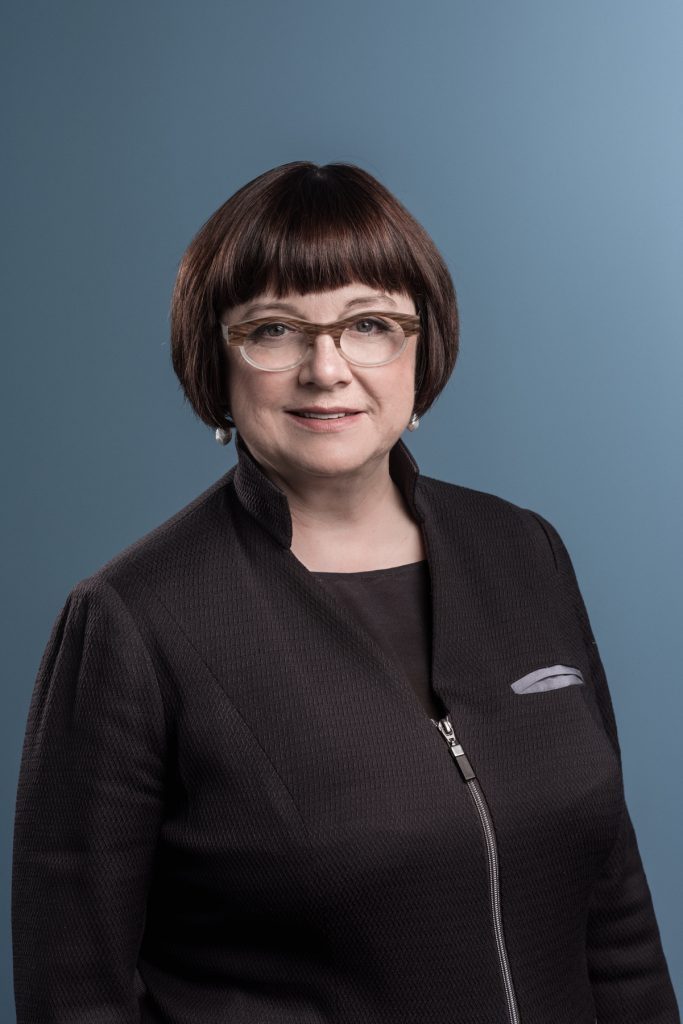Please find below the official announcement by B. Rubesa, CEO and Chairperson, RB Rail, on the Shareholder’s meeting yesterday.
 It has been an honor, mainly a pleasure and certainly a steep learning curve in complexity management to lead the Rail Baltica project for the past two years. As CEO and Chairperson of the Management Board of RB Rail, right up to the very last minute I had constant resistance from some Supervisory Board Members and Beneficiaries of the Rail Baltica global project in Estonia, Latvia and Lithuania to ensure its implementation transparently and effectively, based on the project’s stated corporate values. My personal vision – this project, paid by the Baltic and EU tax payers, must bring true and tangible socio-economic value to the general public and economies of Estonia, Latvia and Lithuania, to ensure the largest possible European added value beyond simply building railway infrastructure as such. Moreover, the project must be governed in the most effective manner, which currently is not the case.
It has been an honor, mainly a pleasure and certainly a steep learning curve in complexity management to lead the Rail Baltica project for the past two years. As CEO and Chairperson of the Management Board of RB Rail, right up to the very last minute I had constant resistance from some Supervisory Board Members and Beneficiaries of the Rail Baltica global project in Estonia, Latvia and Lithuania to ensure its implementation transparently and effectively, based on the project’s stated corporate values. My personal vision – this project, paid by the Baltic and EU tax payers, must bring true and tangible socio-economic value to the general public and economies of Estonia, Latvia and Lithuania, to ensure the largest possible European added value beyond simply building railway infrastructure as such. Moreover, the project must be governed in the most effective manner, which currently is not the case.
In 2018 we are all celebrating Lithuania’s, Estonia’s and Latvia’s centenary. This year should also be as significant for the Baltic project of the century in finally ensuring Rail Baltica’s effective delivery together!
For Rail Baltica’s project implementation, this year is crucial for approval of the infrastructure’s Design guidelines, for making decisions on the upgrade feasibility study of the railway line the Kaunas – Polish/Lithuanian Border, Infrastructure management study – two studies of special interest to Lithuania. It is a year when significant changes regarding the project’s effective organization should take place introducing a highly integrated project implementation model.
In this context, I am proud that I have stood strong and resisted any conflict of interest situations created by some Supervisory Board members taking decisions while at the same time sitting on two chairs – as shareholders and implementing bodies or even potential suppliers, with an attempted top-down interference in, for example, tender processes and, thus, a continuous demand to sacrifice our internationally established procurement practices; interfering in recruitment processes for high management positions, including the Supervisory Board’s decision to appoint as three Internal Auditors specific individuals with national allegiances without choosing them in an open and transparent recruitment process.
For the past two years RB Rail’s Management Board has been saddled by the consequences of slow decision making processes which has left an impact on the ability to deliver the project faster and some activities – on time. In fact, the joint venture’s Supervisory Board has consistently limited the ability to build a proper RB RAIL organization as one effective delivery unit, which has made the implementation process even more challenging.
I am aware that I have been an “uncomfortable” CEO who did not please the special interests of the shareholders and even beneficiaries, by choosing to follow the high values of corporate governance, transparency, honest project implementation in the interests of the general public of the three countries – looking beyond the established freight patterns of the existing national railway companies.
Though I have not received any formal notification by the shareholders, apart from a 10 minute meeting with RB Rail’s Supervisory Board Chairman and Rail Baltica Estonia’s CEO, I am aware that the non-confidence vote by two shareholders in me, is in fact based on my initiative to ensure as efficient a project management and coordination entity as possible with a proposal for a highly integrated project implementation organization – a proposal requested also by EC DG MOVE. Rail Baltica Beneficiaries agreement on such an organization is a precondition for signing the latest CEF3 Grant agreement. This means that we would have one project implementer in three countries (as intended when the joint venture was established) to ensure less spending on administrative expenses, to be able to engage the scarce Baltic expertise used for the entire project, faster alignment and decision-taking process and clear responsibilities who is doing what. It should be possible to ensure one vision, strategy and standard implementation for the totality of the project.
I want to express my sincere gratitude to the very lean RB RAIL team who have stood alongside me and ensured that despite all the mentioned limitations we have ensured that our activities have moved forward, that Rail Baltica has gained credibility for its implementation and that we have entered the Design phase of the project. I am also grateful to the European Commission’s Transport Commission for their sustained support for the project, to myself and for sharing our clear vision – to build a new economic corridor in North-East Europe.
